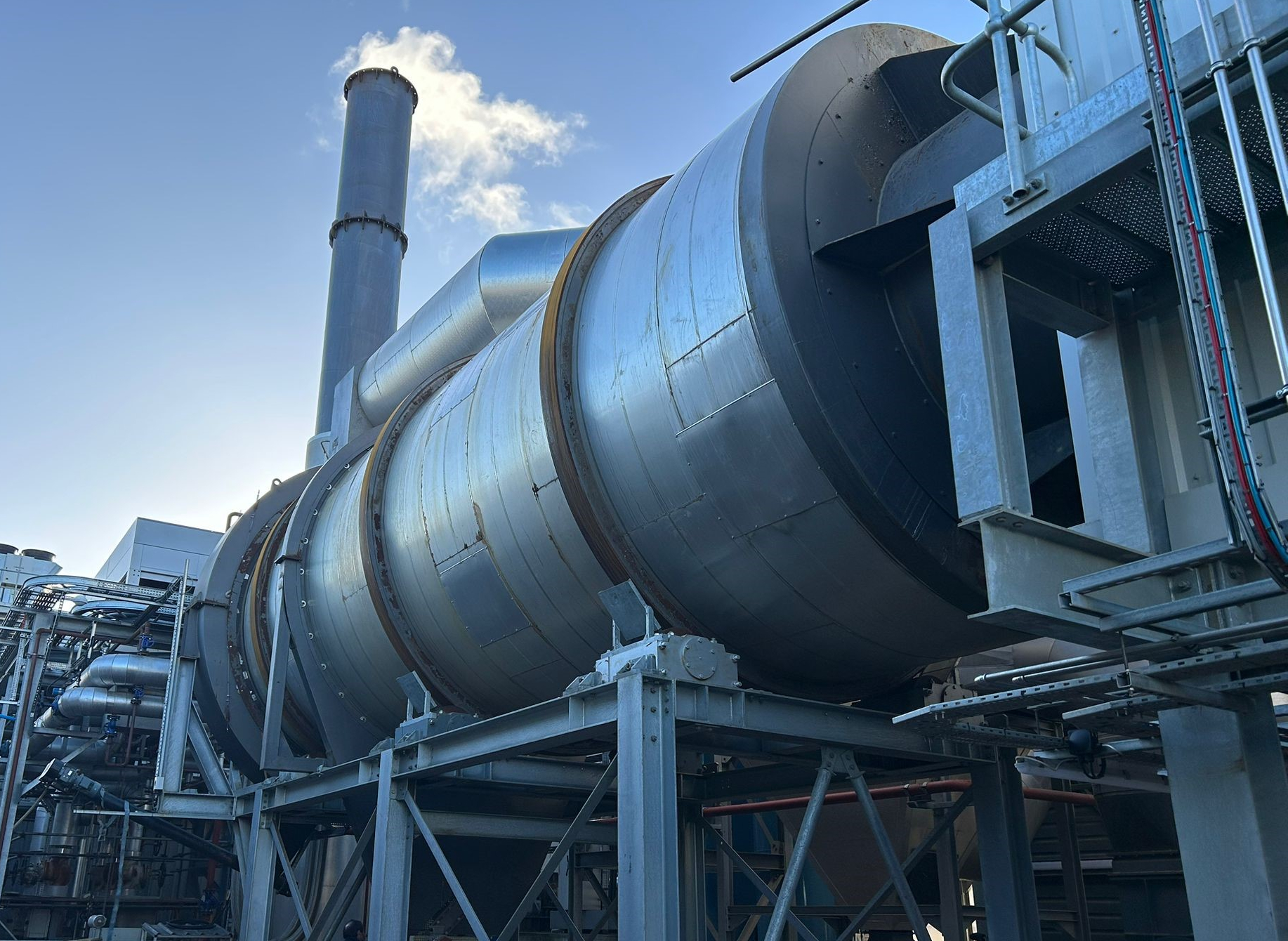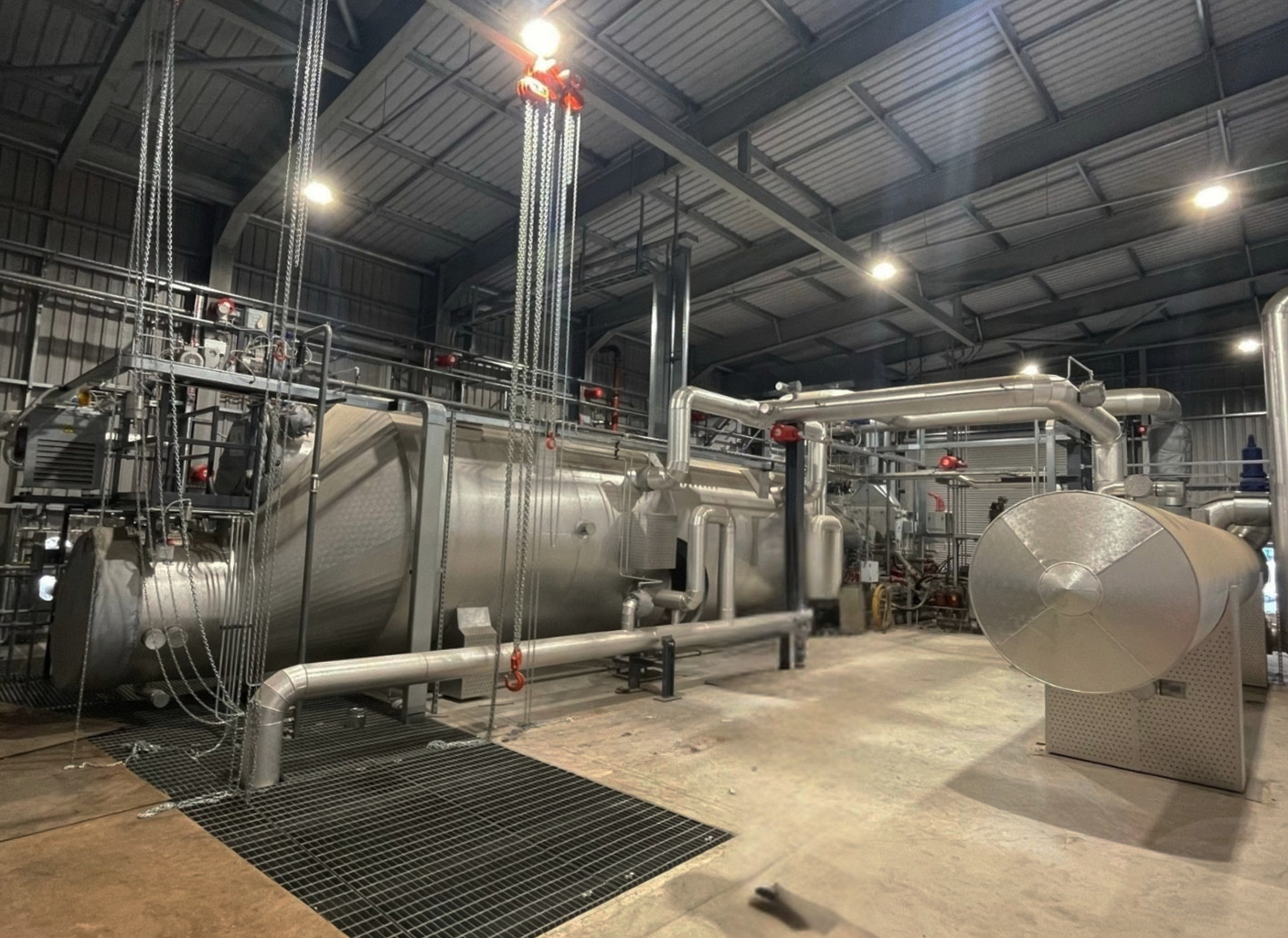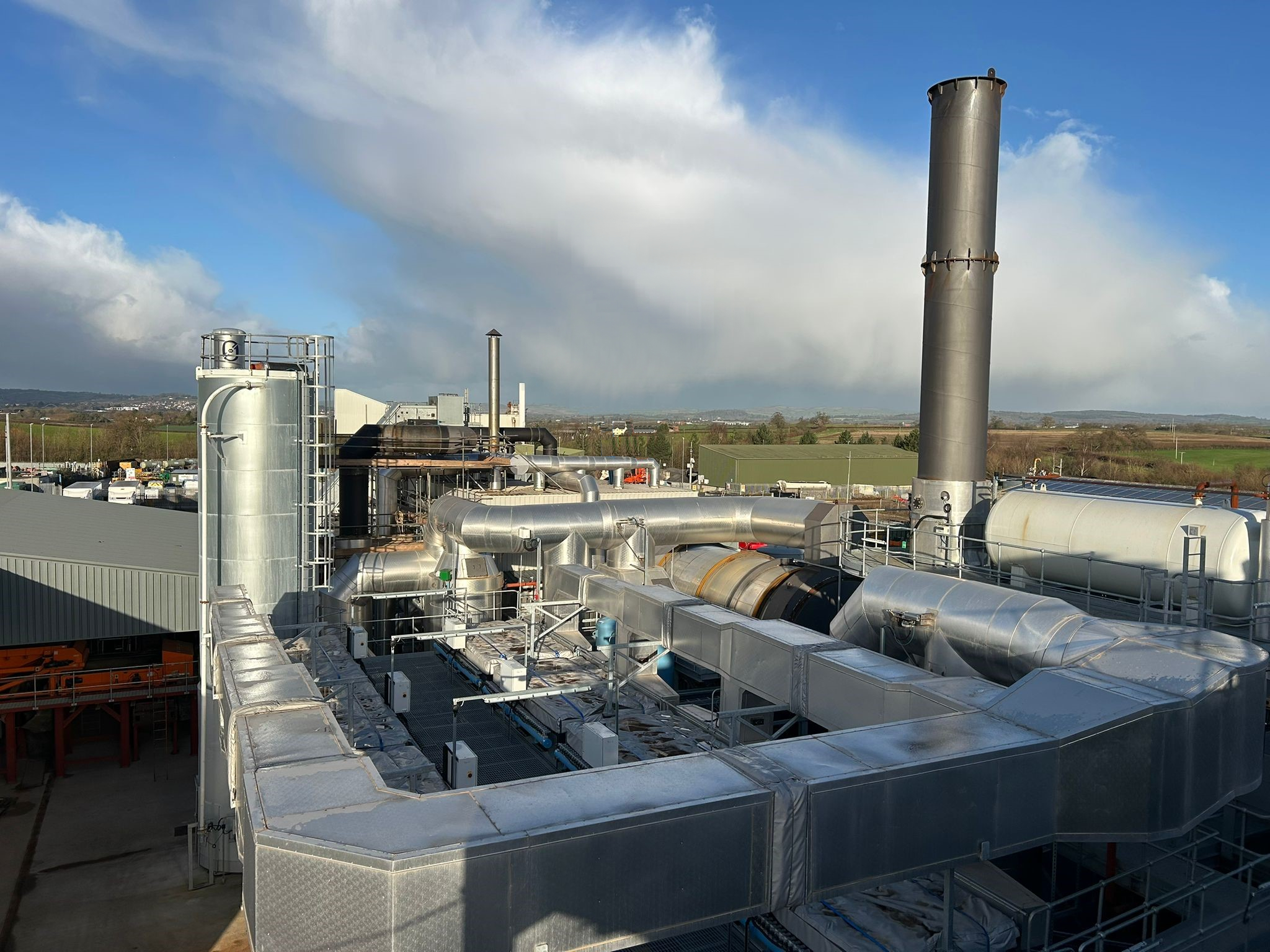Turboden & Bianna: Bianna Decentralised EfW Based on Turboden Orc Technology

Small Waste Incineration Plants (SWIP)
The Waste to Energy (WtE) sector is advancing solutions to reduce CO₂ emissions, enhance energy efficiency, minimize environmental impact, and reduce the amount of waste sent to landfill. A notable approach is decentralized small/medium Energy from Waste (EfW) plants (<200,000 tpy capacity). These plants offer lower logistics costs, increased community acceptance, and economic benefits through internal energy use instead of grid export, particularly in high-taxation regions.
Distributed EfW plants excel in district heating, as their proximity to heat networks ensures economic and logistical advantages. Their scale facilitates securing waste supply from fewer sources, which aids financing by ensuring reliable gate-fee revenue. Technical requirements for such plants include robust, automated, and highly efficient systems capable of handling partial loads and quick changes while maintaining high operational hours.
Specifically, there is a unique scheme in England and Wales for the approval of sub-3 tonne per hour energy from waste systems that are permitted by local authorities as Small Waste Incineration Plants. These systems have to meet the same environmental emission levels as larger plants but, as their environmental impacts are lower than large-scale centralized systems, local authorities can grant both the planning permissions and the environmental permits, streamlining the permitting system to help deliver plants in a shorter time. Furthermore, it appears quite possible that this type of facility may be excluded from the Emissions Trading Scheme (ETS), offering additional regulatory and cost advantages.
BIANNA TECHNOLOGY
Bianna’s technology integrates a mobile step-grate system for RDF combustion, advanced vision-based controls, and an automatic-cleaning boiler to handle high-ash fuels.
The step-grate adapts to varying moisture and calorific values, ensuring stable combustion. Vision-based monitoring continuously adjusts airflows and grate speed to optimize efficiency and reduce emissions. The automatic-cleaning boiler removes ash deposits from heat-transfer surfaces, minimizing downtime and maintaining high thermal performance.
This integrated solution enables the thermal valorization of challenging fuels such as RDF, supporting consistent energy generation while ensuring compliance with stringent environmental regulations. It also streamlines plant operation, enhancing availability, overall reliability, and cost-effective performance in small and medium-scale EfW plants.

TURBODEN ORC TECHNOLOGY
Organic Rankine Cycle (ORC) technology proposed by TURBODEN is pivotal for converting waste heat into electricity efficiently. ORC systems utilize organic fluids with favorable thermodynamic properties, enabling water-free operation, low maintenance costs, high availability, and automation. The process involves vaporizing the working fluid, expanding it through a turbine connected to a generator, and recovering heat in a closed loop, either for electricity or cogeneration.
ORC systems have advantages like high turbine efficiency (up to 90%), low mechanical stress, long operational life (>25 years), and reduced noise levels. Their design minimizes erosion and corrosion, eliminating the need for water treatment and ensuring consistent performance even at partial loads.

CASE STUDY BROOKE ENERGY
Brooke Energy represents a practical example of a decentralized EfW plant designed to treat challenging fuels while maintaining high operational reliability. The core of this facility is a step-grate combustion system equipped with a rotating, self-cleaning H+ boiler (Horizon+), capable of real-time ash removal from heat-transfer surfaces. This ensures continuous performance even when handling fuels with an ash content of up to 25% and moisture levels around 35%. Moreover, the plant processes 3 tonnes of RDF per hour, fitting within the SWIP regulatory framework in England and Wales.
A key strength of the system is its robust combustion technology, which, combined with the self-cleaning capability of the Horizon+ boiler, guarantees more than 8,000 hours of operation per year, ensuring high availability and minimizing downtime due to fouling or slag accumulation.
A key component of this setup is the ORC turbine, which operates using thermal oil from the boiler at 310°C. Designed for cogeneration, it efficiently produces both heat and power. The system is water-cooled and can deliver up to 10 MWth of hot water at the required temperature for various thermal applications.
The ORC turbine operates automatically, requiring no personnel for regular operation. It is designed to generate up to 2.5 MWe and can flexibly adjust its power output based on the thermal load available from the boiler, depending on the fuel characteristics.
Through this setup, Brooke Energy demonstrates how robust combustion hardware, real-time boiler cleaning, and advanced ORC technology can be combined to develop a flexible, small-scale EfW plant. Despite handling heterogeneous RDF with high ash and moisture contents, the facility maintains steady output, meets stringent emissions standards, and exemplifies the operational advantages of decentralized waste-to-energy solutions.

CONCLUSIONS
Decentralized EfW plants utilizing ORC technology address waste treatment locally, reducing costs, environmental impact, and greenhouse gas emissions associated with long-distance waste transport. Smaller plants integrate seamlessly into urban settings, enabling sustainable and efficient waste management near waste sources, minimizing the need for extensive infrastructure and transportation networks.
Turboden and Bianna are an official sponsor for the 2025 Energy from Waste Conference, taking place in London on 5-6 March. Find an exclusive EfW Network discount code here!





Please sign in or register for FREE
If you are a registered user on Energy from Waste Network, please sign in
Interesting post